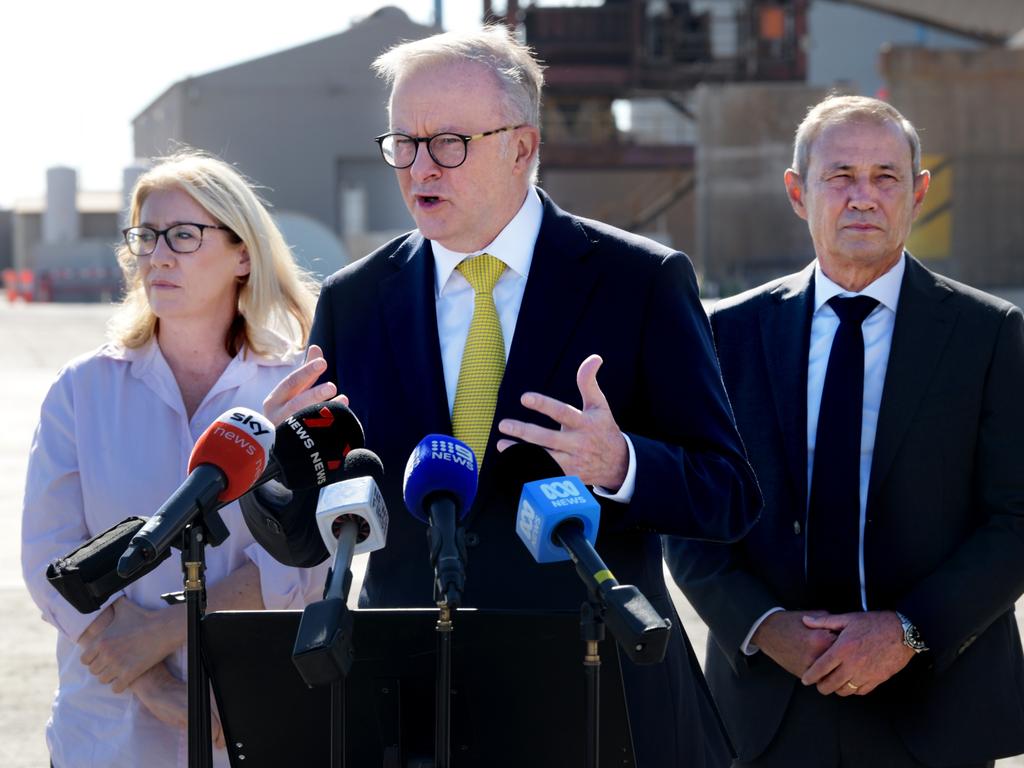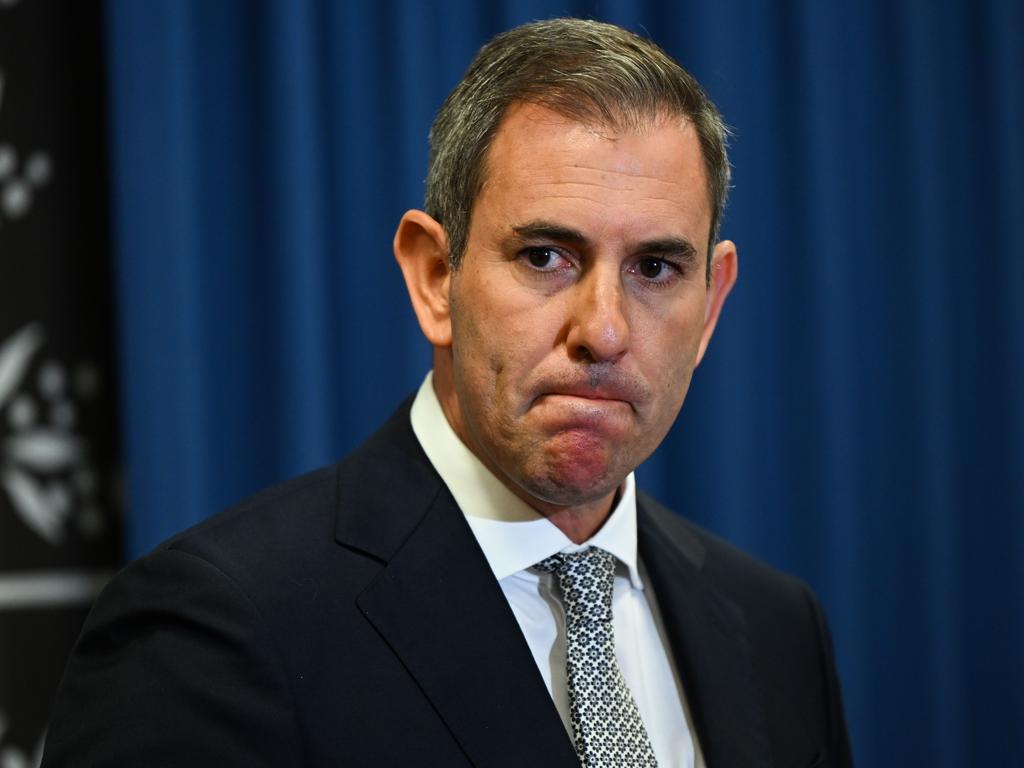Coalition pressed on its childcare policy, Labor struggles for support on super changes
The Coalition is being urged by peak farmer groups and parenting bodies to release its childcare package.

The Coalition is being urged by peak farmer groups and parenting bodies to release its childcare package as some employment experts say Labor’s move to scrap the activity test for three days of subsidised care is a “regressive” policy.
Labor’s replacement of the activity test is all but assured, with the Greens and other members of the crossbench indicating their support for the change, but other pieces of government legislation such as the nature-positive bill, electoral reforms and changes to taxes for super balances worth more than $3m have not progressed.
Several crossbench sources told The Australian on Tuesday that the government was looking to combine its super bill with its popular policy to scrap credit card surcharges, despite Labor sources rejecting such claims and the idea that the government was engaged in “horse trading”.
Labor remains one independent shy of clinching the bill, with only Lidia Thorpe and former Labor senator Fatima Payman open to supporting it.
Greens leader Adam Bandt would not deny Labor had combined the bill with its scrapping of debit card surcharges, saying he was ready to “see what the government comes forward with”.
The government also formally killed its nature-positive legislation, passing a motion to “discharge” the bill from the notice paper on Tuesday; the Coalition continued to seek assurances it would not be brought back in the next term of government.
Legislation that would cap political donations was no closer to being passed either, with the Coalition not having discussed the matter in its partyroom on Tuesday, leaving Labor’s childcare reform as the only significant bill sure to be ticked off this fortnight.
Ahead of the introduction of legislation that will scrap the need to complete at least two days of work, study or volunteering per fortnight to get 72 hours of subsidised care, the National Farmers Federation singled out better access to childcare a key priority for the next government.

Besides investment in organisations seeking to prevent suicide in regional and remote Australia, the NFF said the Coalition needed to match Labor’s policies, particularly when it came to the $1bn commitment to build more childcare centres.
“We implore the Coalition to match Labor’s $1bn ‘building early education fund’ to build more than 160 new childcare centres,” the NFF said in a statement.
Nationals leader David Littleproud defended his party’s opposition to Labor’s childcare policies, saying the government had wasted billions of taxpayer dollars and not made a significant difference to parents in regional Australia. “The Albanese government has already spent over $4.7bn of taxpayers money in childcare subsidies, yet has not created one new childcare place in rural and remote Australia,” he said.
“The Albanese government continues to introduce measures that just increase demand rather than addressing supply, just for short-term political gain.”
The Australian understands the Coalition’s childcare policies were also not discussed in the joint partyroom briefing on Tuesday, while the Greens said they would seek to amend Labor’s bill on the activity test to scrap the measure for the full five days.
The Parenthood – an advocacy group representing more than 80,000 parents across the country – last week wrote to Peter Dutton calling on him to urgently clarify the Coalition’s childcare policies.
“We urge the federal opposition to strengthen its commitments to reducing the cost burden of early childhood education for families and expanding access in childcare deserts,” the letter, seen by The Australian, said.
“The need for action is urgent, and the opportunity to create meaningful change is now.”
Opposition childcare spokeswoman Angie Bell said the Coalition was “genuinely concerned” over implementation of Labor’s policy, including how taxpayer-funded subsidies and the $1bn fund to build more childcare centres would be spent.
“When it comes to Labor’s three-day guarantee, the policy will only increase demand in a sector that is already at capacity, because Labor has done nothing over the last three years to increase supply. A three-day guarantee means nothing when you can’t even access one day,” she said.
United Workers Union national president Jo Schofield said Labor’s 15 per cent pay rise for early educators had helped attract more staff and cater to demand.
“The 15 per cent pay rise for early educators has resulted in a marked improvement in attraction and retention of workers who previously were leaving the sector in droves,” she said.
While the childcare sector and advocacy groups have widely welcomed Labor’s scrapping of the activity test for three days, others have questioned how effective it would be.
Australian National University professor Ben Phillips said removing the activity test for three days was “likely more symbolic than a substantial move to universal childcare”; some sources in the employment sector said the abolition of the test was regressive and the evidence regarding its benefits was “mixed”.








To join the conversation, please log in. Don't have an account? Register
Join the conversation, you are commenting as Logout